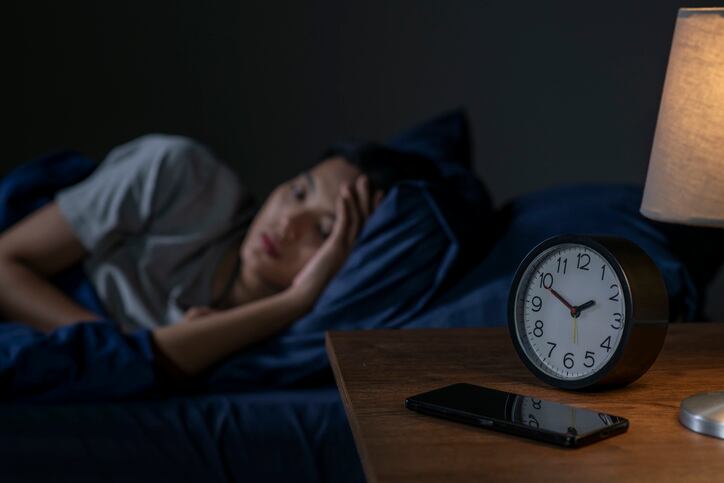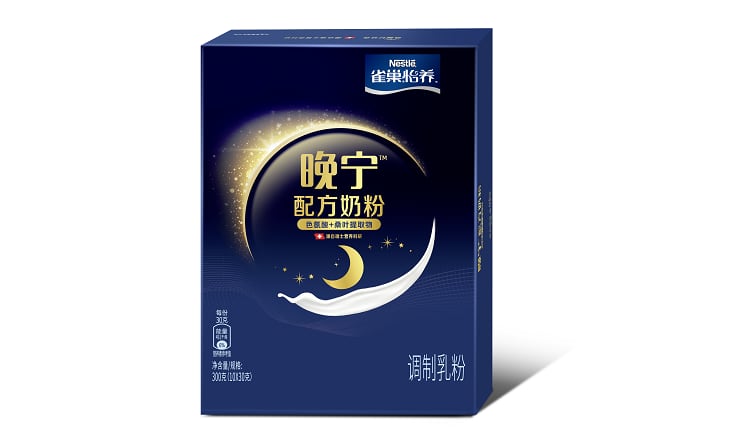A pilot study trial found that Rhodiola rosea and Nelumbo nucifera extracts (RNE) improved the sleep quality of participants with subthreshold insomnia, or those who have only daytime impairment or one or more nighttime symptoms. Simply put, they not classed as having insomnia yet but there are indications that their sleep could be improved.
“The results suggest that RNE is an effective, low-risk option for sleep disturbance, significantly improving sleep quality and overall wellbeing without significant side effects,” wrote the researchers in Nutrients.
Traditional insomnia medications are often associated with adverse side effects such as increased respiratory arousal (waking up due to disrupted air flow) and decreased attention. Therefore, the researchers wanted to explore new approaches that use natural ingredients, which might have fewer side effects.
Rhodiola rosea Linn, commonly referred to as roseroot, has been approved by the Korean Food and Drug Administration as a supplement to improve stress-induced fatigue. Rosavin, a compound found in R rosea, was also reported to have potential therapeutic benefits for stress-related conditions and depression. Nelumbo nucifera Gaertn, also known as lotus, is a medicinal herb and its seeds have been traditionally used in East Asia to treat people suffering from sleep disturbances.
To examine changes in sleep quality, fatigue, and quality of life after RNE administration in adults with subthreshold insomnia, researchers in Korea conducted a study trial that was funded by LG Household & Health Care (LG H&H) Co Ltd.
The study
From 27 June 2017 to 26 September 2017, researchers in Korea recruited adults aged between 20 and 65 years with subthreshold sleep disturbances. A sample size of 20 was planned as it was a pilot study.
Each capsule contained 375 mg extracts from the roots of R rosea and the seeds of N nucifera at a ratio of 2:1 respectively. The ingredients were from Hyundai Bioland (Ansan, Republic of Korea).
The participants ate 2 capsules a day at bedtime for 2 weeks.
Observations and measurements were taken at the start of the trial and at weeks 1 and 2 after it started. The participants visited every week and blood samples were drawn to check vital signs, compliance with the trial instructions, and for any adverse health conditions.
The study used five tools to assess the quality of subjective sleep (based on how the participant felt) and objective sleep (based on measurable data and observable metrics): The Insomnia Severity Index (ISI), the Pittsburgh Sleep Quality Index (PSQI), a sleep diary, the Fatigue Severity Scale (FSS), and the Short Form 36 Health Survey (SF-36). Results from these measurements were used to assess the efficacy of RNE in improving sleep quality with fewer side effects.
The ISI is a subjective self-report tool that assesses the severity of sleep onset latency (the transition from wakefulness into sleep), sleep maintenance (staying asleep for the desired or planned amount of time), early morning awakening problems, sleep dissatisfaction, interference of sleep difficulties with day-time functioning, noticeability of sleep problems by others, and related distress. A score of 8–14 is classified as subthreshold insomnia.
The PSQI measures the quality of sleep and sleep disturbance. It uses a self-report questionnaire that assesses subjective sleep quality; sleep latency, i.e. time taken to fall asleep; sleep duration; habitual sleep efficiency (SE), i.e. the ratio between how much time one is asleep and the time spent in bed; sleep disturbance; use of sleeping medication; day-time dysfunction). A total score > 5 indicates poor sleep.
A sleep diary was used to examine the overall aspect of sleep. Sleep-onset latency (SOL), wake-time after sleep onset (WASO), total sleep time (TST), and SE were calculated; sleep and day-time satisfaction data (e.g., day-time exercise, caffeine use, and alcohol use) were also collected.
The FSS is a self-report questionnaire that assesses day-time fatigue caused by insomnia. It evaluates self-perceived feelings related to fatigue, with a higher score indicating feeling more fatigue.
The SF-36 was used to assess changes in the quality of life by reviewing factors that affect general health and mental health. A higher score indicated a better quality of life.
Results and implications
This study showed that RNE has the potential to improve overall sleep quality. Of the 20 participants, 13 completed the study and showed significant improvements in sleep quality. The results showed improvements in ISI and PSQI scores, a 57% reduction in WASO, and improved sleep efficiency. Although FSS scores remained unchanged, significant improvements were seen in SF-36 physical and mental health scores.
Along with the subjective quality, the time parameters of sleep also improved. In the sleep diary, SOL decreased by 8 min, WASO decreased by 9 min, and TST increased by 25 min.
“The subjective and objective sleep status improved after two weeks of administration and no serious adverse events were encountered. However, although RNE could enhance the physical and emotional levels related to the quality of life, it did not significantly relieve fatigue,” said the researchers.
“Although the feeling of fatigue or energy loss persisted, there was an overall improvement in both physical and mental factors. A reduction in RE and MH showed that RNE could ameliorate mental aspects such as depression and anxiety.”
The researchers also found that for the younger age group (19 ≤ age < 50), the ISI scores showed a significant improvement over time. The PSQI scores also showed a significant improvement, which did not significantly change over time in the results of total participants. For the older age group (50 ≤ age < 65), both the ISI and PSQI scores did not show a significant change between visits.
These findings indicate that RNE could significantly improve both insomnia severity and sleep quality in younger adults but might not have a significant effect in older adults, which indicate that younger individuals may respond more favourably to RNE supplementation to improve sleep-related issues.
However, the researchers acknowledged that further research with larger sample sizes in the older age group may be necessary to fully comprehend the potential advantages of RNE for different age demographics.
“A dose of 750 mg/day of RNE improved sleep quality in individuals with subthreshold insomnia. It significantly changed the total ISI and PSQI scores and components over time and showed improvements in WASO and SE. In addition, RNE improved physical and mental health. Clinically significant adverse events and safety-related problems were not observed. These results suggest that RNE may be considered as a preventive or therapeutic agent to improve sleep disturbances. Further clinical trials on the long-term efficacy and safety of RNE administration are warranted,” concluded the researchers.
Source: Nutrients
DOI: https://doi.org/10.3390/nu16121867
“Mixture of Rhodiola rosea and Nelumbo nucifera Extracts Ameliorates Sleep Quality of Adults with Sleep Disturbance”
Authors: Yunna Kim, Won Kyung Lee et al.
Active Lifestyle Nutrition will be a major topic at Growth Asia Summit 2024 – join us in Singapore to learn about market opportunities and glean insights from major industry experts. Find out more here.





